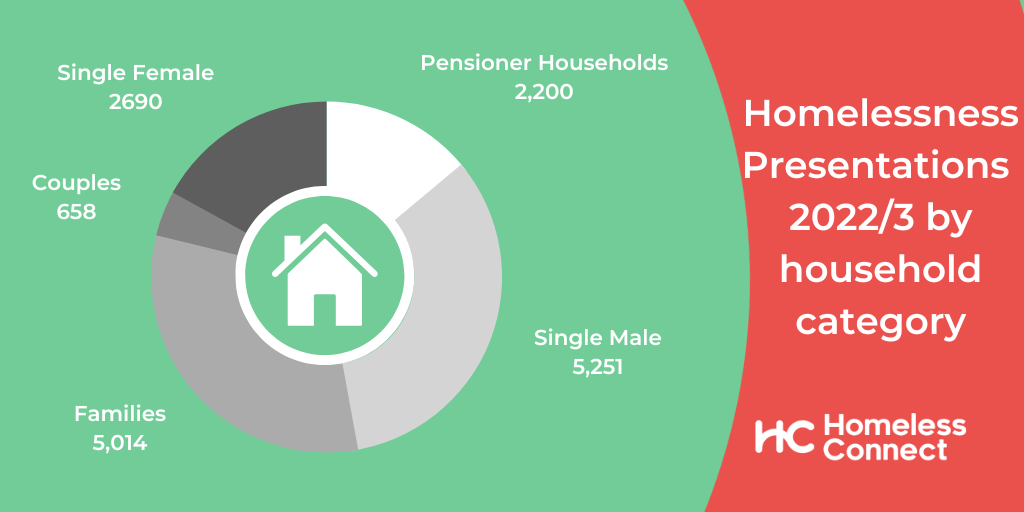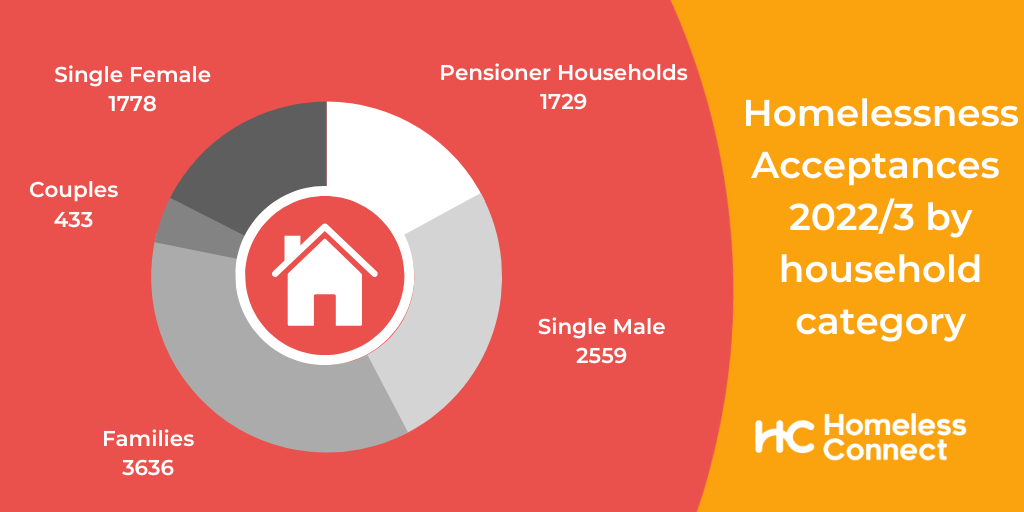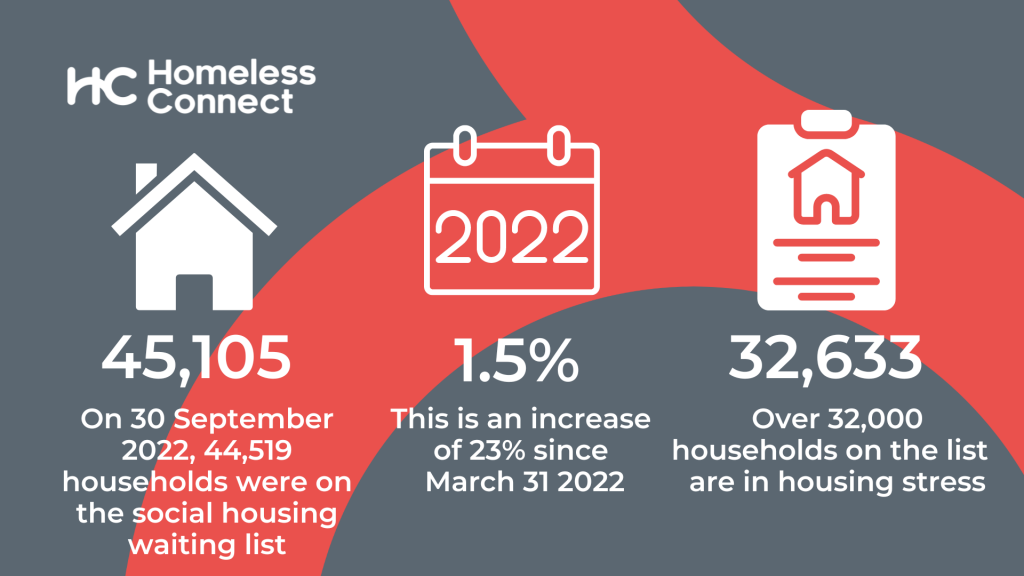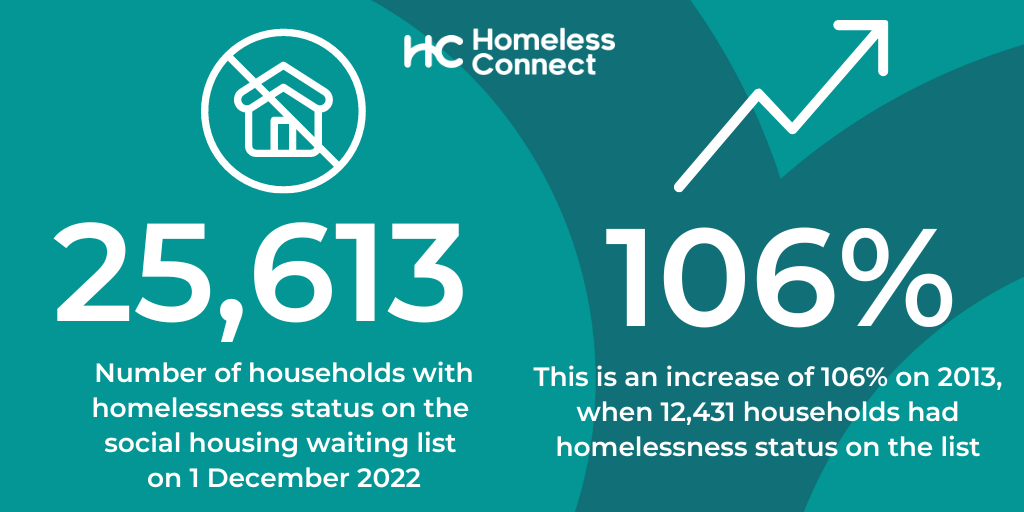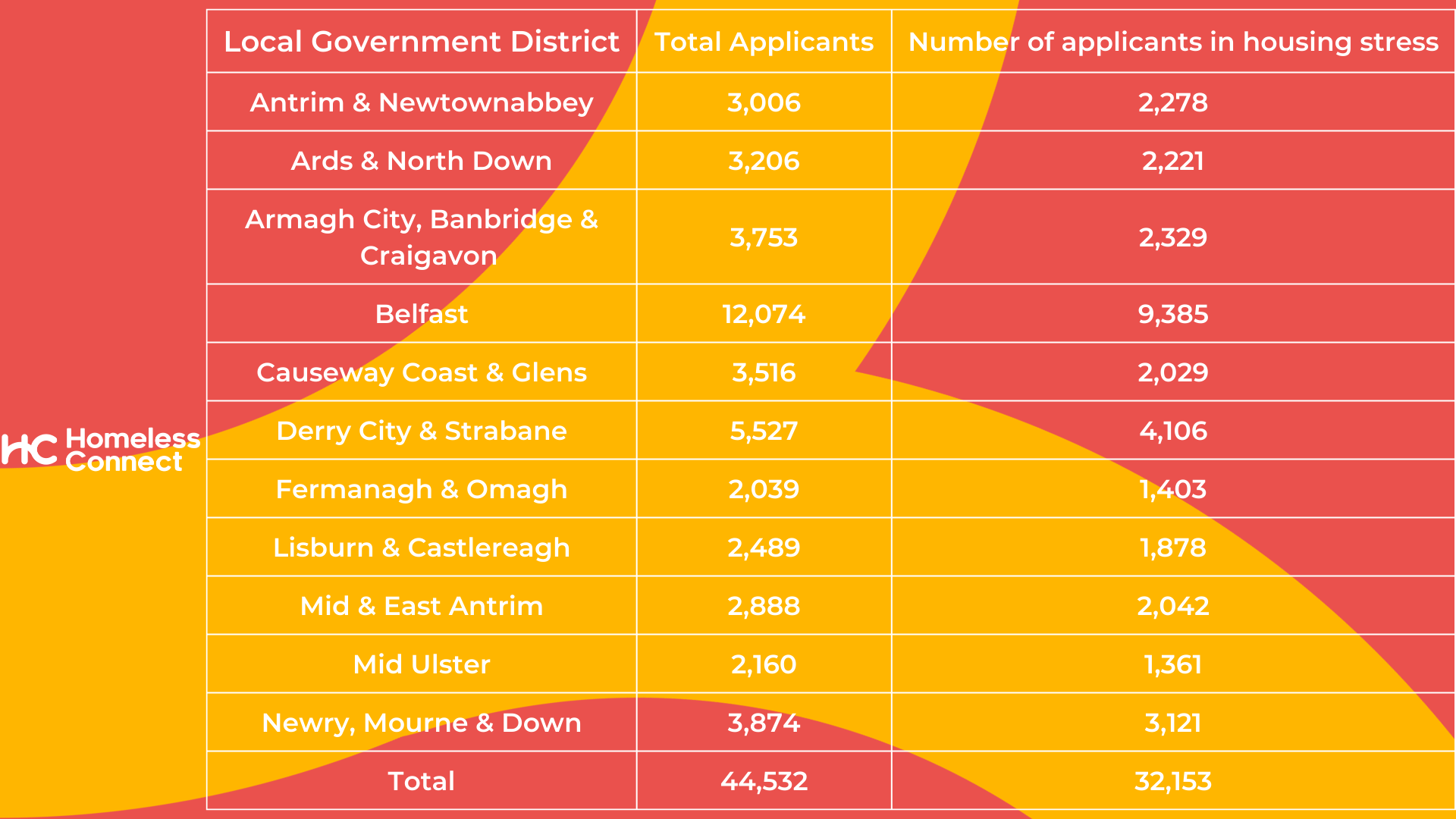This morning the Department of Communities published the latest edition of its Housing Bulletin for January to March 2023. The bulletin, which is published four times a year, includes a raft of statistics on housing and homelessness.
Homelessness Presentations
The number of households presenting to the Housing Executive as homeless in January to March 2023 rose to 4,335 households, an increase of 8% (322 households) on the same quarter last year. In 2022/3 as a whole, 15,965 households presented as homeless. This was a small rise on the previous year of 207 households (1.3%).
The number of households accepted as homeless following assessment by the Housing Executive rose from 2,436 households in January to March 2022 to 2,803 in the same quarter in 2023, a rise of 15%. In 2022/3, 10,349 households were accepted as homeless. This was a rise of 214 on the previous year (2.1%)
Throughout 2022/3, 32.9% of households presenting were single males (5,251 households); 16.8% were single females (2,690 households); 4.1% were couples (658 households); 31.4% were families (5,014 households); 13.8% were pensioner households (2,200 households); and 1% were undefined (152 households). The family type figures in 2021/2 were broadly similar to 2022/3, with a 5.93% rise in the number of families presenting (281 additional families presenting) while the number of single males and females presenting fell by 2.3% and 4.1% respectively.
The reasons recorded as to why households presented as homeless have been changing in recent years. The most notable shift has been in the numbers presenting as a result of the loss of rented accommodation. In 2022/3 2,892 households presented due to this reason. In 2021/22, only 2,463 households presented for this reason. This is an increase of 17.4% in one year and is perhaps a reflection of the impact that the cost of living crisis is having on households living in the private rented sector here. On the other hand, the number of households presenting as a result of neighbourhood harassment fell from 1,435 to 1,221, a fall of 15%.
Homelessness Acceptances
In terms of acceptances, 24.7% of households accepted were single males (2,559 households); 17.2% were single females (1,778 households); 4.2% were couples (433 households); 37.1% were families (3,636 households); and 16.7% were pensioner households (1,729 households). Compared to the year before, there was a rise of 5.4% in the number of families accepted as homeless while the number of single males and females accepted fell by 2.7% and 2.9% respectively.
As with presentations, there has been a notable increase in the number of households accepted as homeless due to a loss of rented accommodation with 1,808 households accepted for that reason in 2022/3 compared to 1,586 in 2021/2 (an increase of 14%). The number of households accepted as a result of neighbourhood harassment also fell from 830 acceptances in 2021/2 compared to 653 in 2022/3, a fall of 21.3%.
What the presentation and acceptance data shows is that the overall picture remains relatively stable. There has been a small increase in the number of presentations and acceptances, but the levels remain below what they were in the mid to late 2010s. There has been a notable trend of more families presenting and being accepted as homeless since the advent of Covid 19.
The Social Housing Waiting List
The social housing waiting list stood at 45,105 households on 31 March 2023. This is up 1.53% on the same quarter last year, when the list stood at 44,426. The number of households deemed to be in “housing stress” has also continued to rise. A household in housing stress is any household which has 30 or more points for the purposes of the social housing selection scheme and consequently includes households deemed to have homelessness status (who are granted 70 points). In March 2022, 31,407 households on the list were assessed as being in housing stress. In March 2023, this had risen to 32,633, a rise of 3.9%.
While the number of households with homelessness status is not provided in the statistics, we know from other sources that on 1 December 2022 25,613 households on the list had homelessness status.
It is pertinent to compare the figures released today with those published a decade ago. On 31 March 2013, 41,356 households were on the social housing waiting list. 22,414 of those households were in housing stress. 12,431 households were deemed to have homelessness status. In the last decade, figures have increased on by 9.1%, 45.6% and 106% (on December 1 2022) respectively. These are unquestionably stark figures, showing a deepening housing and homelessness crisis in this society.
In the last year, the number of households in housing stress have increased in all 11 local council areas across NI while the social housing waiting list has increased in nine of them (the exceptions being Belfast and Armagh, Banbridge and Craigavon).
Conclusion
These figures undeniably show a worsening housing and homelessness picture in Northern Ireland. It is not inevitable that the situation has to continue to get worse. With the right policy and resources, different outcomes are possible.
However, the proposed budget for 2023/4 brought forward by the Secretary of State for Northern Ireland looks set to exacerbate the situation if it is implemented. The Department for Communities, which has responsibilty for housing and homelessness, faces a funding gap running in to the hundreds of millions of pounds.
Rather than increasing the level of resources available to seek to address the ongoing crisis, it looks like the budget will in fact reduce the resources available for the purposes of building more housing and providing much needed support to households at risk of or experiencing homelessness. Such a move is highly likely to have deeply damaging consequences.
Homeless Connect will be strongly advocating in the weeks and months to come for additional resources to respond to the ongoing housing and homelessness crisis this society is experiencing.
You can find the housing bulletin in full here.


